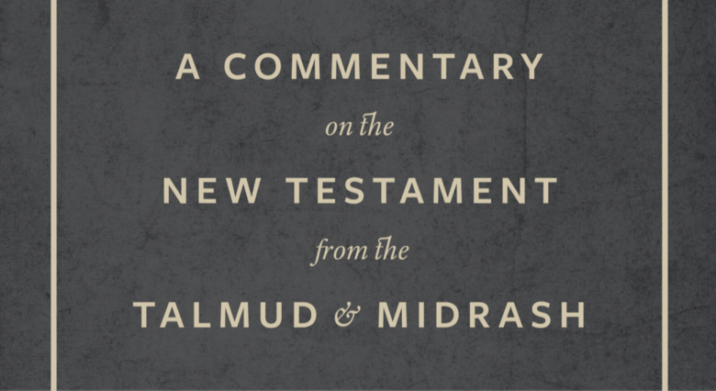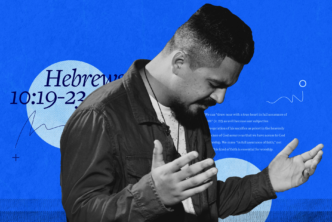Lexham Press has just made a significant contribution to biblical studies with the translation, editing, and publication of the massive 3-volume Strack-Billerbeck Commentary on the New Testament from the Talmud and Midrash. Every verse in the New Testament is illuminated with potentially relevant passages from the keystone works of rabbinic Jewish theological thought, the Talmud and Midrash. Jacob Cerone, General Editor and key translator of the work (also doctoral candidate at Friedrich-Alexander-Universität in Erlangen-Nürnberg) provides an excellent example of how S-B can benefit the research and teaching interests of scholars and pastors alike:
In Matthew 2:23, the evangelist writes, “And he went and lived in a city which is called Nazareth so that the word of the prophets might be fulfilled, that he will be called a Nazarene.” This citation of the prophets is problematic to modern interpreters of Matthew, since there is no passage from the Old Testament that claims the Messiah will come from Nazareth or be called a Nazarene. Numerous attempts have been made by commentators to resolve the difficulty, and Strack-Billerbeck contains one such attempt, which is rooted in ancient Jewish, especially rabbinic, interpretative practice. In their comments on Matthew in vol. 1, they write:
But if the Evangelist was certain that the neṣer-prophecy had come to fulfillment in Jesus’ dwelling in Nazareth, then according to the hermeneutical principles applied by the ancient synagogue it was not difficult to find a direct prophecy by the expression נֵצֶר (Isa 11:1) in the name נֹצְרִי Nazarene. A hermeneutical rule applied countless times was אל תקרי, (“do not read” or “do not speak”) such and such a word of the Old Testament text, but rather this one instead. — As a rule, the change in the pronunciation of a word was limited to a slight change of vowels or to a change or switching of individual consonants. In all cases, however, the proof thus obtained was recognized as fully valid, at least for the Haggadah. The Evangelist, too, without explicitly stating so, probably followed the following line of thought: “When reading Isa 11:1, replace נצר with נֹצְרִי.”
To be sure, this explanation is not the last word on the issue and has difficulties of its own. Not insignificant, argues R. T. France, is the fact that “such a word-play is totally invisible in Greek, the language in which Matthew is writing” (NICNT, 92). Nevertheless, Strack and Billerbeck not only offer a theoretically plausible explanation of the citation, they root that explanation in established interpretive methods within rabbinic Judaism and provide numerous examples within the commentary where this type of interpretation occurs within the rabbinic texts.
Strack and Billerbeck (Lexham Press) is now on sale only from Logos. Get your copy of the first English-language translation of this massive work today.
You can also get the original German version of all three volumes of Kommentar zum Neuen Testament aus Talmud und Midrasch (C.H. Beck).





